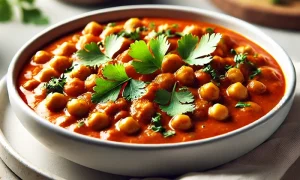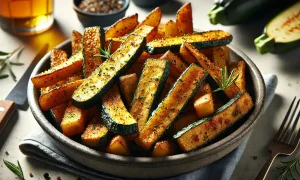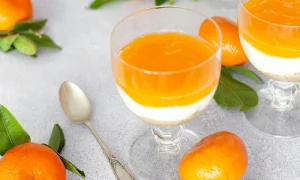What Vitamins are Most Important on a Vegan Diet?

If you’re following a vegan diet, it’s important to make sure you’re getting all the necessary vitamins and minerals. While a well-planned vegan diet can provide all the nutrients your body needs, there are some vitamins that are more difficult to obtain from plant-based sources.
Key Takeaways
- A well-planned vegan diet can provide all the necessary vitamins and minerals, but some are more difficult to obtain from plant-based sources.
- Vitamin B12, Vitamin D, Omega-3 Fatty Acids, Iron, Calcium, Zinc, and Iodine are all important vitamins and minerals to monitor on a vegan diet.
- It’s important to monitor your vitamin and mineral intake to ensure you’re getting all the nutrients your body needs to function properly.
Why Monitor Vitamins on a Vegan Diet?
Vegan diets are often rich in fruits, vegetables, whole grains, and legumes, which are all great sources of vitamins and minerals. However, some vitamins are more difficult to obtain from plant-based sources, and deficiencies can lead to serious health problems. It’s important to monitor your vitamin intake to ensure you’re getting all the nutrients your body needs to function properly.
Vitamin B12, Vitamin D, Omega-3 Fatty Acids, Iron, Calcium, Zinc, and Iodine are all important vitamins and minerals to monitor on a vegan diet. In the following sections, we’ll discuss each of these in more detail and provide tips on how to ensure you’re getting enough of each nutrient.
Vitamin B12
Vitamin B12 is an essential nutrient that plays a crucial role in maintaining healthy nerve cells and red blood cells. It is also involved in DNA synthesis and energy production. Since Vitamin B12 is primarily found in animal products, it can be challenging for vegans to get the recommended daily intake of this vitamin. Therefore, it is essential to monitor your Vitamin B12 levels closely if you’re following a vegan diet.
Vegan Sources of Vitamin B12
The only reliable vegan sources of Vitamin B12 are fortified foods and supplements. Some plant-based milks, soy products, and breakfast cereals are fortified with Vitamin B12. Nutritional yeast is also a good source of Vitamin B12. However, it’s important to check the labels of these products to ensure that they are fortified with Vitamin B12.
Monitoring Vitamin B12 Levels
It’s crucial to monitor your Vitamin B12 levels regularly if you’re following a vegan diet. Vitamin B12 deficiency can lead to anemia, fatigue, and neurological problems. The recommended daily intake of Vitamin B12 for adults is 2.4 micrograms (mcg) per day [1].
There are several ways to monitor your Vitamin B12 levels. You can get a blood test to check your Vitamin B12 levels. If your levels are low, your doctor may recommend Vitamin B12 supplements to help you meet your daily requirements. It’s also important to discuss any supplements or dietary changes with your doctor to ensure that they are safe and effective for you.
Vitamin D
Vitamin D is an important nutrient for maintaining strong bones and teeth, as well as supporting immune function. On a plant-based diet, it can be challenging to get enough vitamin D since many food sources are animal-based. However, there are still ways to ensure you are meeting your daily requirements.
Vegan Sources of Vitamin D
One of the easiest ways to get vitamin D is through exposure to sunlight. Spending 10-30 minutes in the sun three times a week can help your body produce enough vitamin D. However, this can be difficult during the winter months or if you live in a location with limited sunlight.
Another source of vitamin D for vegans is fortified foods. Many plant-based milks, cereals, and other products are fortified with vitamin D. Be sure to check the label to ensure the product is vegan-friendly.
Mushrooms are also a good source of vitamin D. Some types of mushrooms, such as shiitake and portobello, contain vitamin D2. However, it is important to note that not all mushrooms contain vitamin D, and the amount can vary depending on how they are grown and prepared.
Monitoring Vitamin D Levels
Since vitamin D is important for bone health, it is essential to monitor your levels to ensure you are getting enough. A blood test can determine your vitamin D levels and help you determine if you need to adjust your diet or take supplements.
The recommended daily intake of vitamin D for adults is 15 micrograms (mcg) per day [2]. However, some experts suggest that vegans may need more since their sources of vitamin D are limited. If you are concerned about your vitamin D levels, talk to your healthcare provider about whether supplements are necessary.
Omega-3 Fatty Acids
Omega-3 fatty acids are essential fats that play a crucial role in maintaining your overall health, including your heart, brain, and immune system. While these fatty acids are commonly known to be found in fish, vegans can still obtain them from plant sources.
Vegan Sources of Omega-3 Fatty Acids
The primary plant-based sources of omega-3 fatty acids are flaxseeds, chia seeds, hemp seeds, and walnuts. These foods are rich in alpha-linolenic acid (ALA), which is a type of omega-3 fatty acid that your body can convert into other forms of omega-3s, such as eicosapentaenoic acid (EPA) and docosahexaenoic acid (DHA). The amount your body is able to convert is rather limited[3].
Other vegan sources of omega-3s include seaweed, algae oil, and fortified foods such as plant-based milks, juices, and spreads. However, it’s important to note that these sources may not provide enough EPA and DHA, which are the most biologically active forms of omega-3s.
Monitoring Omega-3 Fatty Acids Levels
It’s important to monitor your omega-3 fatty acid levels on a vegan diet to ensure you’re getting enough of these essential fats. One way to do this is by regularly consuming foods rich in ALA, such as chia seeds and flaxseeds.
You can also consider taking an algae-based omega-3 supplement, which provides EPA and DHA without relying on fish or fish oil. Be sure to consult with your healthcare provider before starting any new supplement regimen.
Iron
Iron is an essential mineral that plays a vital role in the production of red blood cells and the transportation of oxygen throughout the body. It is especially important for people on a plant-based diet to monitor their iron intake as plant-based sources of iron are not as easily absorbed by the body as animal-derived sources.
Vegan Sources of Iron
There are two types of dietary iron: heme iron and non-heme iron. Heme iron is found in animal-derived foods such as meat, poultry, and seafood. Non-heme iron, on the other hand, is found in plant-based sources such as legumes, nuts, seeds, and leafy greens.
Some of the best plant-based sources of iron include:
- Lentils
- Chickpeas
- Tofu
- Quinoa
- Spinach
- Cashews
- Pumpkin seeds
- Tahini
- Fortified cereals
To increase the absorption of non-heme iron, it is recommended to consume it with a source of vitamin C. For example, you could add some bell peppers or citrus fruits to your lentil soup or sprinkle some lemon juice on your spinach salad.
Monitoring Iron Levels
It is important to monitor your iron levels if you are following a vegan diet to ensure that you are getting enough of this essential mineral. Iron deficiency can lead to anemia, fatigue, and other health issues.
If you are experiencing symptoms of iron deficiency or are concerned about your iron levels, it is recommended to talk to your healthcare provider about getting a blood test. They can also provide guidance on whether an iron supplement may be necessary.
In addition to getting enough iron in your diet, it is also important to avoid consuming foods or beverages that can interfere with iron absorption. For example, tea and coffee contain compounds that can inhibit the absorption of non-heme iron. It is recommended to wait at least an hour after consuming these beverages before consuming iron-rich foods.
It is possible to get enough iron on a vegan diet by consuming a variety of plant-based sources and being mindful of absorption factors.
Calcium
Calcium is an essential mineral that plays a crucial role in maintaining healthy bones and teeth. It is also important for muscle function, nerve transmission, and blood clotting. As a vegan, it is important to monitor your calcium intake to ensure that you are getting enough of this vital nutrient.
Vegan Sources of Calcium
There are many plant-based sources of calcium that you can include in your diet. Some of the best sources include:
- Fortified plant-based milks (such as soy, almond, or rice milk)
- Fortified orange juice
- Tofu made with calcium sulfate
- Leafy greens (such as kale, collard greens, and bok choy)
- Broccoli
- Almonds
- Sesame seeds and tahini
- Dried figs
It’s important to note that some plant-based foods contain compounds that can interfere with calcium absorption, such as oxalates and phytates. However, this doesn’t mean you should avoid these foods altogether. Instead, try to balance your diet with a variety of calcium-rich foods and make sure you are getting enough vitamin D, which helps your body absorb calcium.
Monitoring Calcium Levels
It’s important to monitor your calcium levels to make sure you are getting enough of this important nutrient. Your doctor can perform a blood test to check your calcium levels. The recommended daily intake of calcium for adults is 1000-1200 milligrams (mg) per day [4].
If you are not getting enough calcium from your diet, your doctor may recommend taking a calcium supplement. However, it’s important not to overdo it with supplements, as too much calcium can lead to health problems.
Zinc
Zinc is an essential mineral that plays a vital role in maintaining a healthy immune system, wound healing, and cell growth and division. It is also important for maintaining healthy skin, hair, and nails.
Vegan Sources of Zinc
As a vegan, it is important to ensure that you are getting enough zinc in your diet. Some of the best plant-based sources of zinc include:
Food Zinc Content (mg)
- Hemp seeds: 2.8
- Pumpkin seeds: 2.2
- Chickpeas: 1.3
- Lentils: 1.3
- Quinoa: 1.2
- Cashews: 1.1
- Chia seeds: 1.0
- Tofu: 0.9
- Walnuts: 0.9
- Wholemeal bread: 0.6
Adding these foods to your diet can help ensure that you are getting enough zinc. It is important to note that phytates, which are found in some plant-based foods, can inhibit the absorption of zinc. For some foods, you can soak, sprout, or ferment them to make the zinc more bioavailable.
Monitoring Zinc Levels
While it is important to ensure that you are getting enough zinc in your diet, it is also possible to get too much zinc. High doses of zinc can lead to nausea, vomiting, and diarrhea. Therefore, it is important to monitor your zinc levels and not exceed the recommended daily intake of 8mg (women) or 11mg (men) per day [5].
If you are concerned about your zinc levels, you can ask your healthcare provider to test your blood levels. They can also recommend a zinc supplement if you are not getting enough zinc from your diet. However, it is important to speak with your healthcare provider before taking any supplements to ensure that they are safe and appropriate for you.
Iodine
Iodine is an essential mineral that is important for thyroid function, brain development, and overall health. It is particularly important for vegans to pay attention to their iodine intake since many vegan foods are not naturally high in iodine.
Vegan Sources of Iodine
There are several vegan sources of iodine that you can include in your diet. Some of the best sources of iodine include:
Food Iodine Content (mcg per serving)
- Seaweed (kelp, nori): 232
- Baked Potato with skin: 60
- Lima Beans: 16
- Cranberries: 400
- Navy Beans: 64
- Strawberries: 10
- Spinach: 3
It’s important to note that the iodine content of plant foods can vary depending on the soil content where they are grown. If the soil is iodine-deficient, the plant will not contain much iodine. Therefore, it’s a good idea to choose organic produce whenever possible, as organic farming practices tend to promote soil health.
Monitoring Iodine Levels
One way to monitor iodine levels is to include iodine-rich foods in your diet regularly. Another way is to take a daily iodine supplement.
It’s important not to overdo it with iodine supplements, as too much iodine can also be harmful. The recommended daily intake of iodine for adults is 150 mcg per day [6]. If you are pregnant or breastfeeding, you may need more iodine. Be sure to talk to your healthcare provider about your iodine needs and whether or not you should take an iodine supplement.
Ensuring a Balanced and Nutritious Plant-Based Diet
Monitoring your vitamin and mineral intake is crucial when following a vegan diet. While a well-planned vegan diet can provide all the necessary nutrients, it’s important to be aware of potential deficiencies and take steps to address them.
It’s also important to pay attention to your vegan protein intake and ensure you’re getting enough through sources such as legumes, tofu, and tempeh.
Overall, a well-planned vegan diet can provide all the necessary nutrients for a healthy lifestyle. By monitoring your vitamin and mineral intake and making adjustments as necessary, you can thrive on a vegan diet.
Frequently Asked Questions
Do vegans need vitamin B12?
Yes, it is essential for vegans to have a reliable source of vitamin B12 in their diet. Vitamin B12 is necessary for healthy nerves and blood, and it is not made by plants or animals but by bacteria. A daily supplement is an easy way to meet your vitamin B12 needs.
What is the most important vitamin for vegans?
While all vitamins are important, vitamin B12 is the most important vitamin for vegans to monitor. As mentioned earlier, it is essential for healthy nerves and blood.
What vitamins are a concern for vegans?
Vegans need to keep an eye on their vitamin B12, calcium, and vitamin D intake, as well as protein and vitamin B6. These diets require the exclusion of certain foods, and it’s important to add other foods, such as fruits, vegetables, and whole grains, to ensure proper nutrition.
What vitamins do vegans lack most?
Vegans are most likely to lack vitamin B12, as it is not found in plants. Additionally, calcium and vitamin D are often lacking in vegan diets, as they are primarily found in dairy products. Iron and zinc are also important minerals to monitor, as they are typically found in meat and seafood. However, each individual can be different.
Veggums references research from industry experts and reputable industry publishers to support claims or data in our content when applicable. Learn more about our publishing standards and practices in our editorial guidelines.
- NIH - Vitamin B12
Accessed: September 10, 2023 - NIH - Vitamin D
Accessed: September 10, 2023 - Healthline - 7 Plant Sources of Omega-3s
Accessed: September 10, 2023 - NIH - Calcium
Accessed: September 10, 2023 - NIH - Zinc
Accessed: September 10, 2023 - NIH - Iodine
Accessed: September 10, 2023
Please note that this content is not intended to be health advice and should not be taken as such. Please do your own research and consult with a healthcare professional before making significant changes to your diet.






